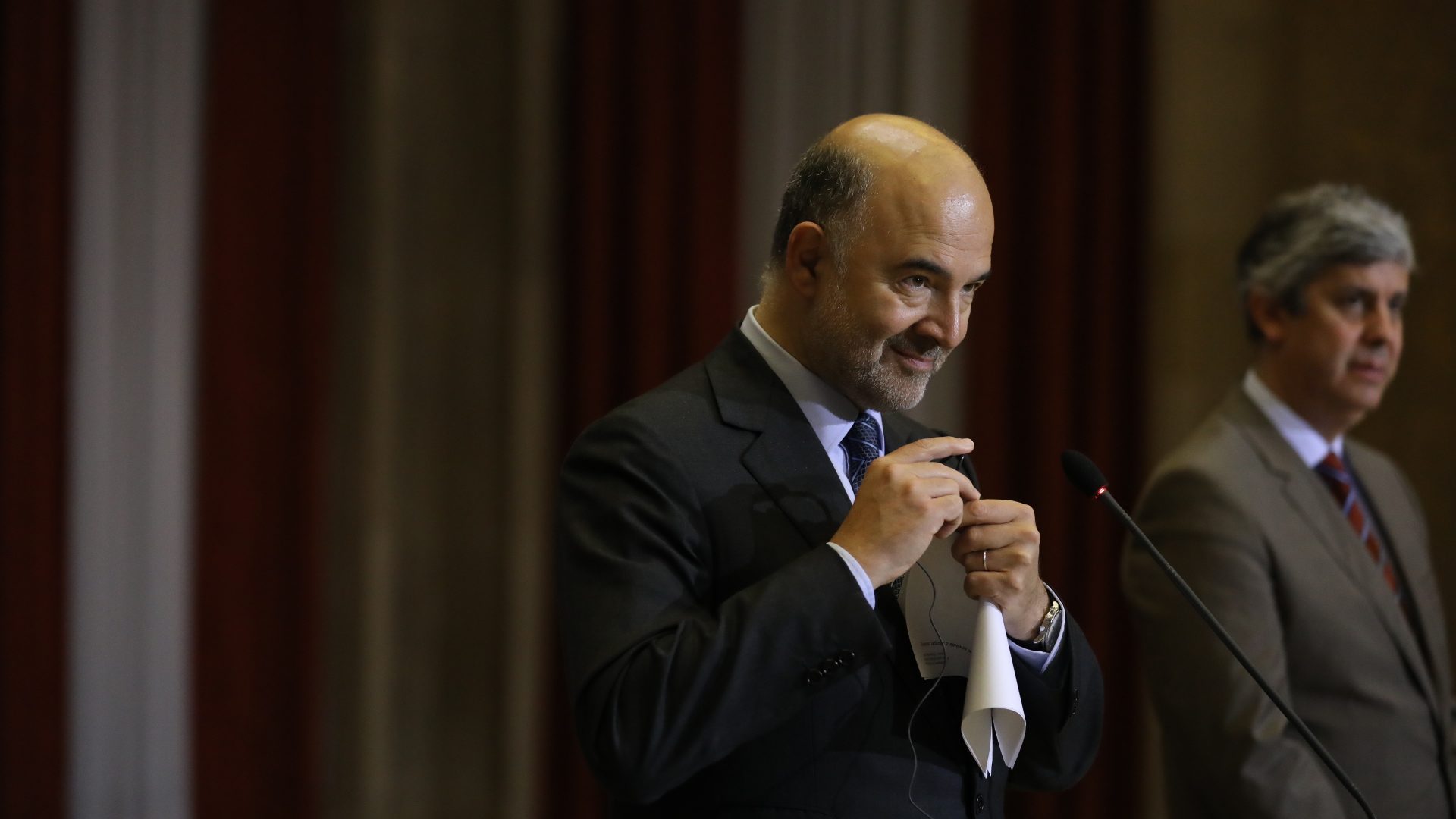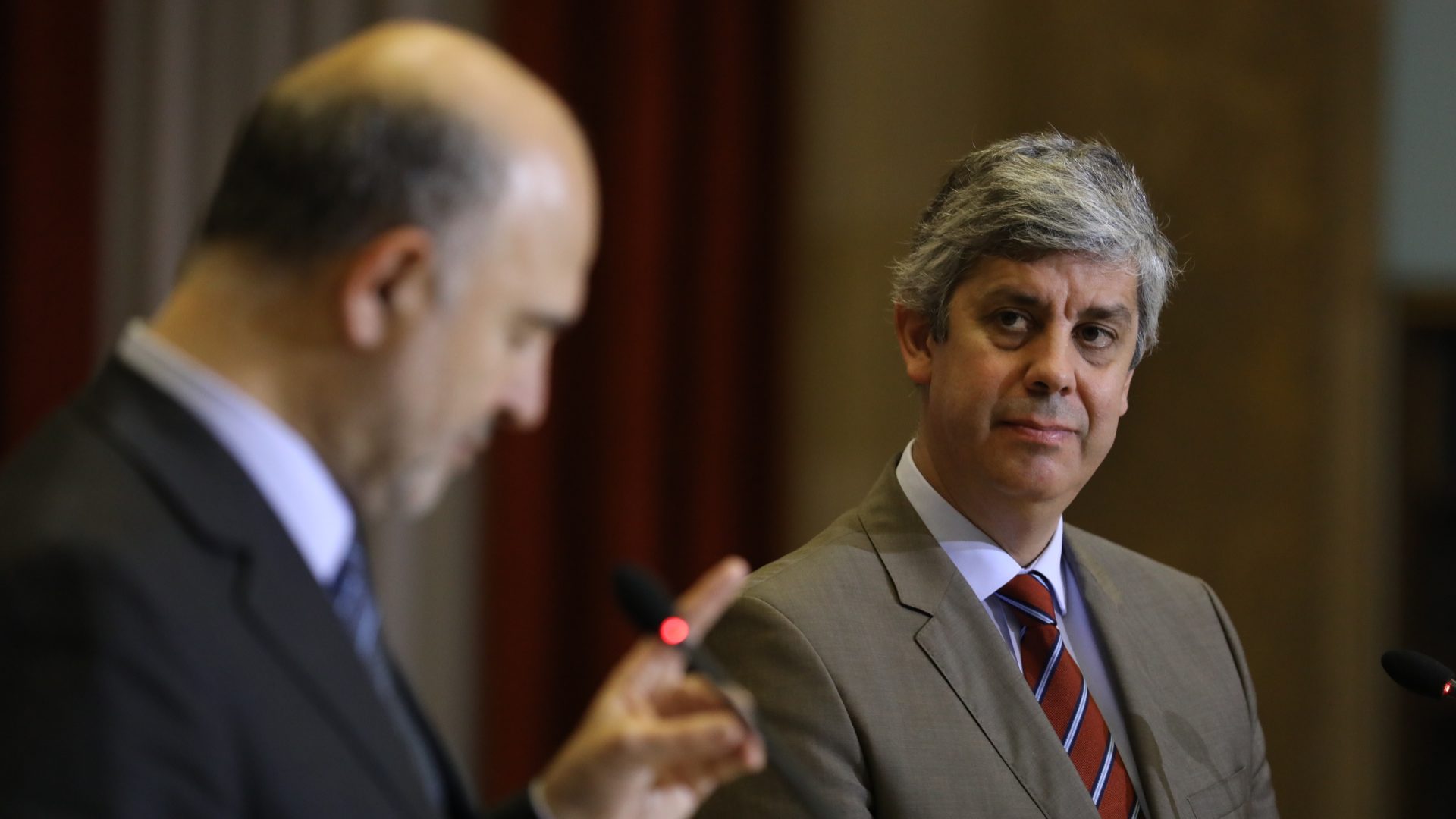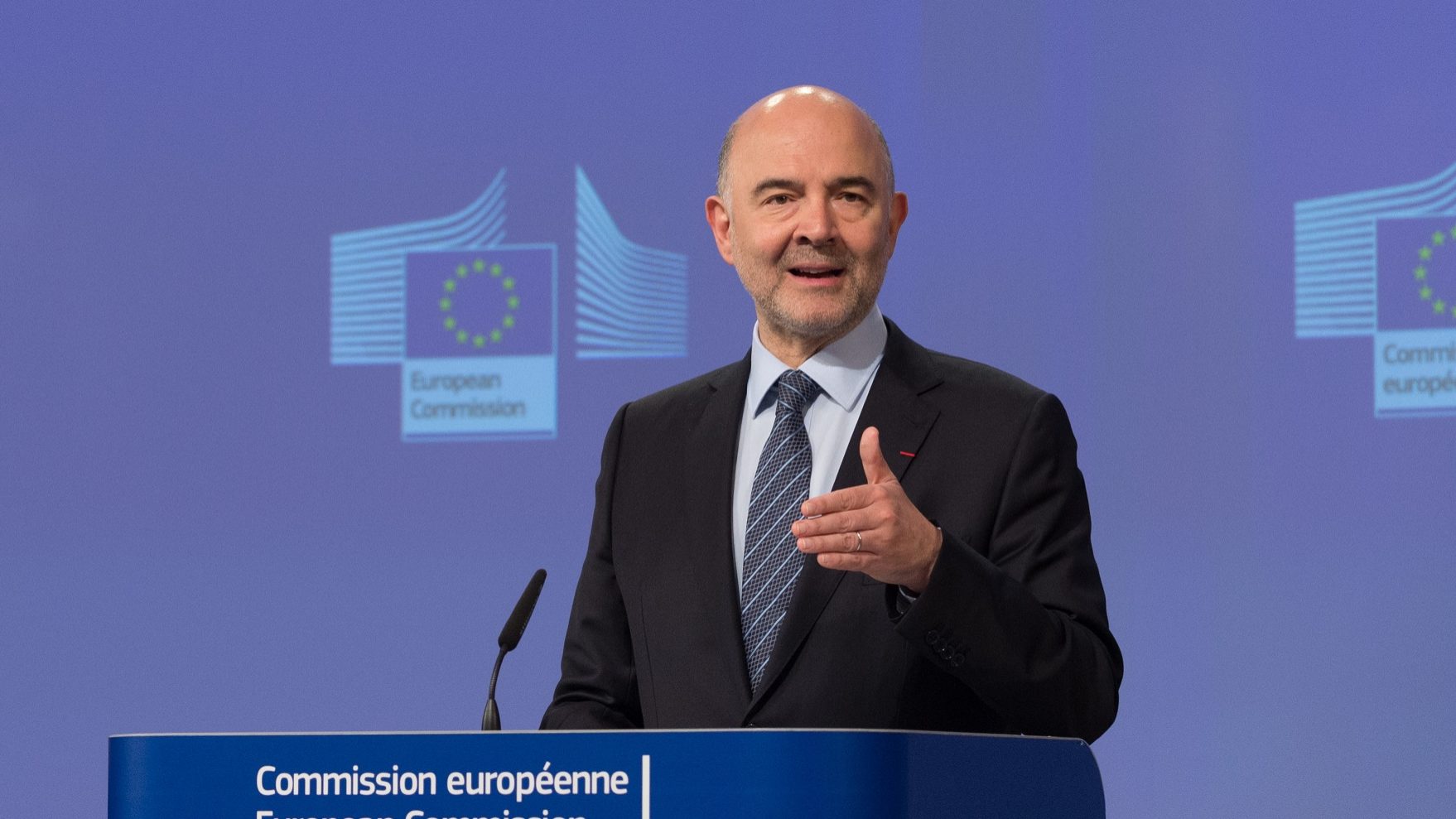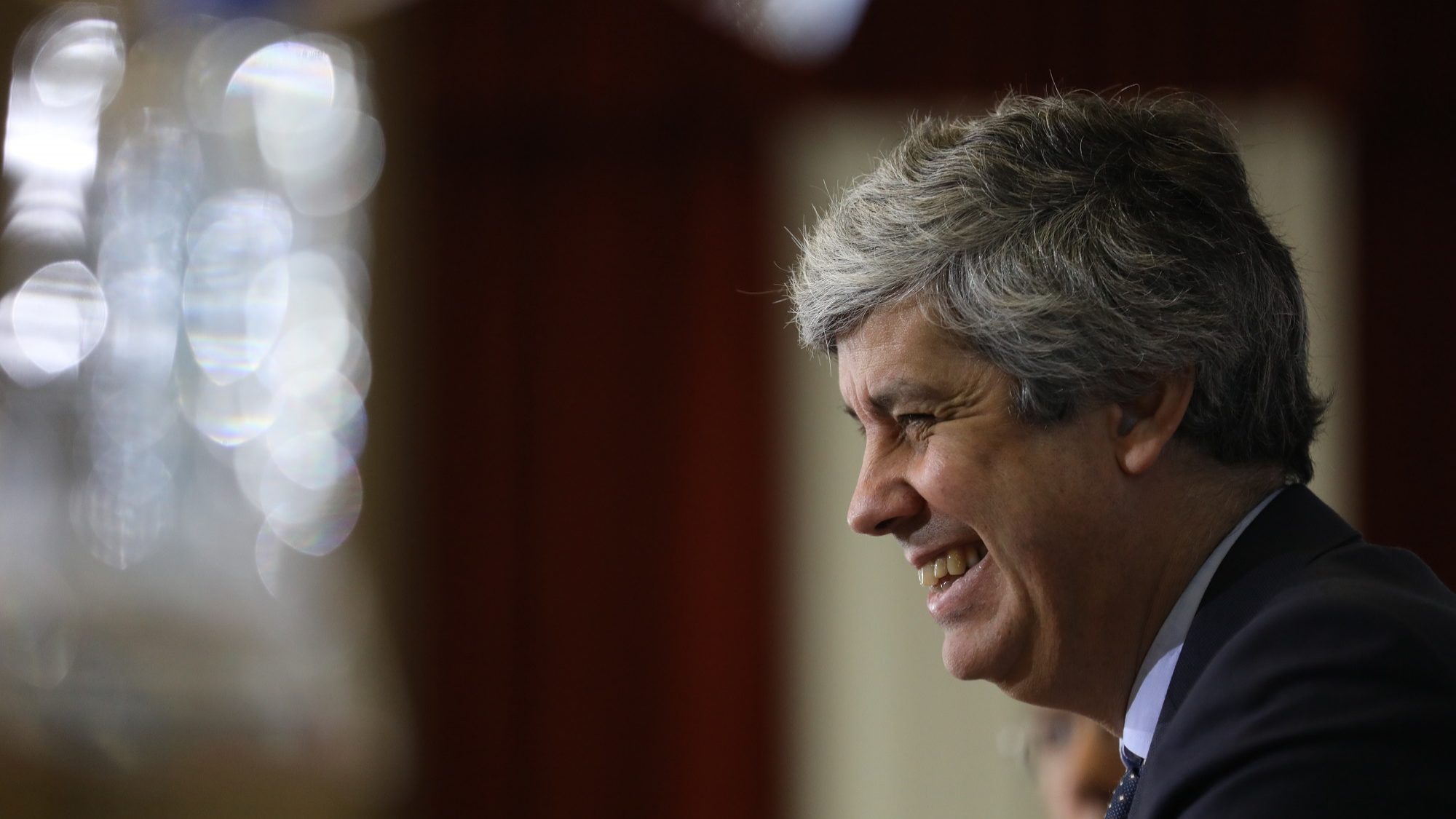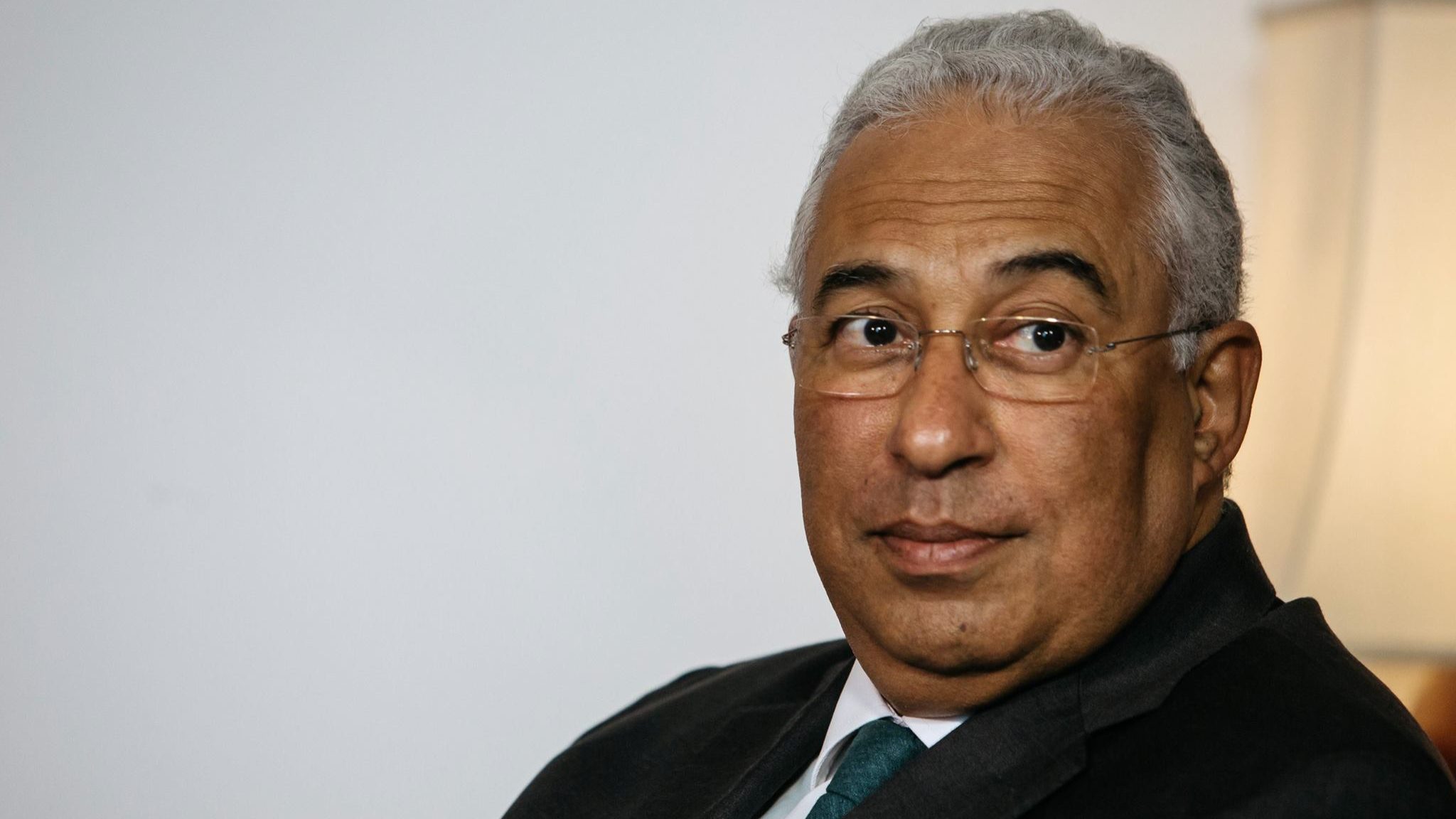“We don’t want a deficit adjustment which lowers growth”, says Moscovici
Pierre Moscovici tells ECO, in an interview, that "the Portuguese economy is in much better shape", but gives a warning: "A country which is indebted is a country which gets poorer".
In an exclusive interview to ECO, Pierre Moscovici, commissioner for Economic and Monetary Affairs, states he considers Portugal “a success story”. The man which monitors the public finance of 28 Member-States from the EU advocates it would have been “unfair” to not recommend Portugal’s abrogation of the Excessive Deficit Procedure (EDP) — even if CGD‘s recapitalization ruins this year’s deficit.
Portugal has been a part of EDP since 2009, which means “the country suffered a very serious crisis, and had to make huge efforts in order to get out of it”. That is the reason why, Moscovici explains, the European Commission (EC) recommended Portugal’s exit from EDP to the European Council. According to the EC’s Spring forecast, “Portugal was able to have a durable decrease of its deficit to less than 3% of GDP” — and “that is the criterion”.
“A country which is indebted is a country which gets poorer“, adds Moscovici, who considers Portugal’s economic recovery is a result of the efforts made by the Portuguese Governments, namely in reducing the deficits and in the budgetary consolidation. Nonetheless, Moscovici recalls the deficit projections do not include the impact of the aid to be given to CGD. It is not expected, however, that it will lastingly risk the deficit correction: “Even if there is a slight increase of the deficit in one moment, it will be corrected”, states Moscovici. The commissioner also stated it would be unfair not to recommend the exit of EDP and to penalize the Portuguese for “that moment which is an incident that does not change the fact that the deficit is durably under 3%”.

Moscovici does not want to speak of breaking budgetary rulings, but he acknowledges the need to grow may make EC turn a blind eye on an adjustment far from what was recommended.
The European Commission decided not to increase the severity of the procedure concerning macroeconomic imbalances. In their specific recommendation for Portugal, EC explains they decided not do so, as long as their recommendations are fully implemented — even though EC knows they are never fully implemented. Moscovici explains this is happening because EC is “confident in what has been done in Portugal”, adding that “the country is proving it is going the right direction”. He adds: “what we are clearly saying is that we recommended the abrogation from EDP because of the significant improvement of the country’s situation, although we acknowledge there is more improvement to be done”.
"Growth is getting better, the recovery is very strong, the confidence in the country is growing and the public finances are now sound — that is why Portugal can exit EDP. That is the best way for the Portuguese people to see how much the European Commission is taking care of their problems, while also trying, in a very good dialogue with the Government, to find the right solutions.”
To conclude the interview, he opens the door for Mário Centeno, Portuguese Finance minister, to head the Eurogroup, but leaves him with a warning: “when you are the President of the Eurogroup you have to make arbitrations that are not necessarily favorable to your own country”. He further adds: “If one day Mário Centeno, a very competent minister, would become president of the Eurogroup, he should know that in Portugal he would sometimes have to take some distance from his current job”.
